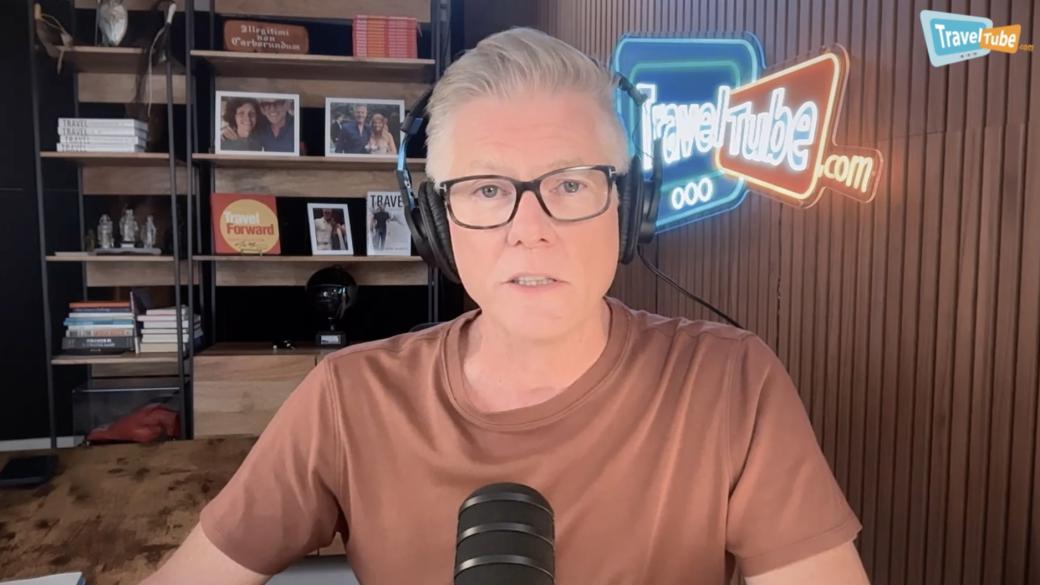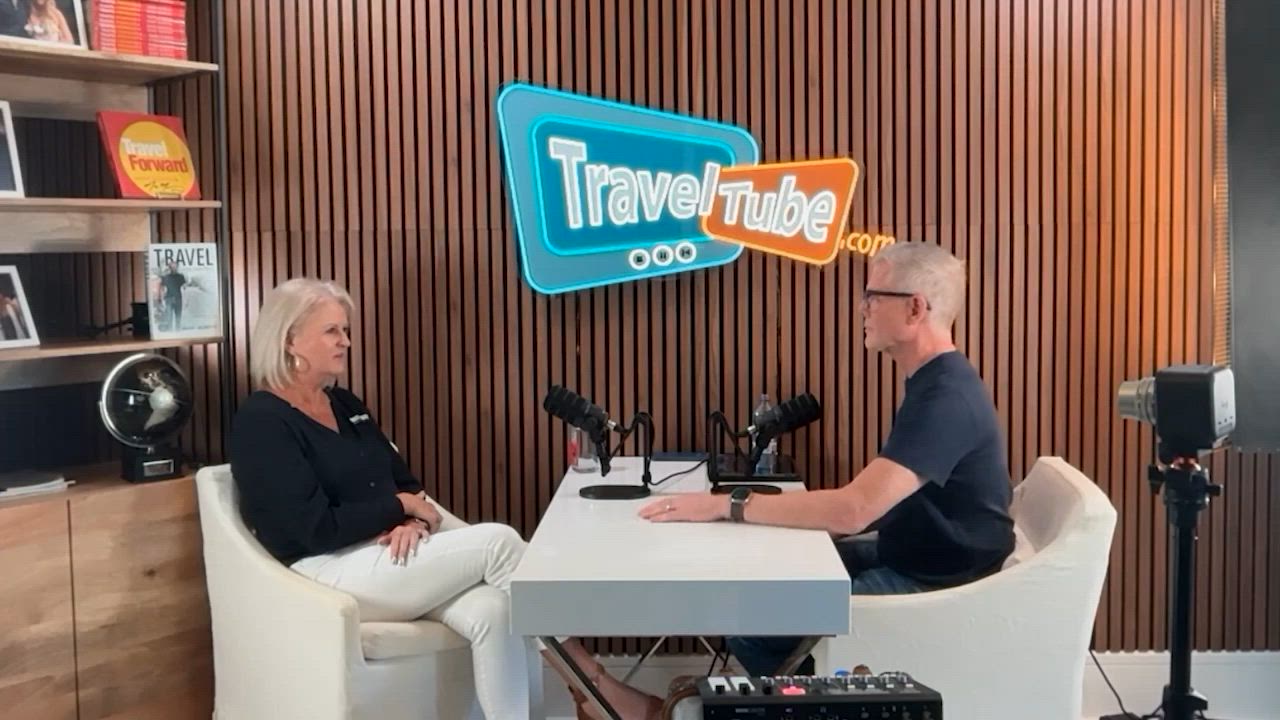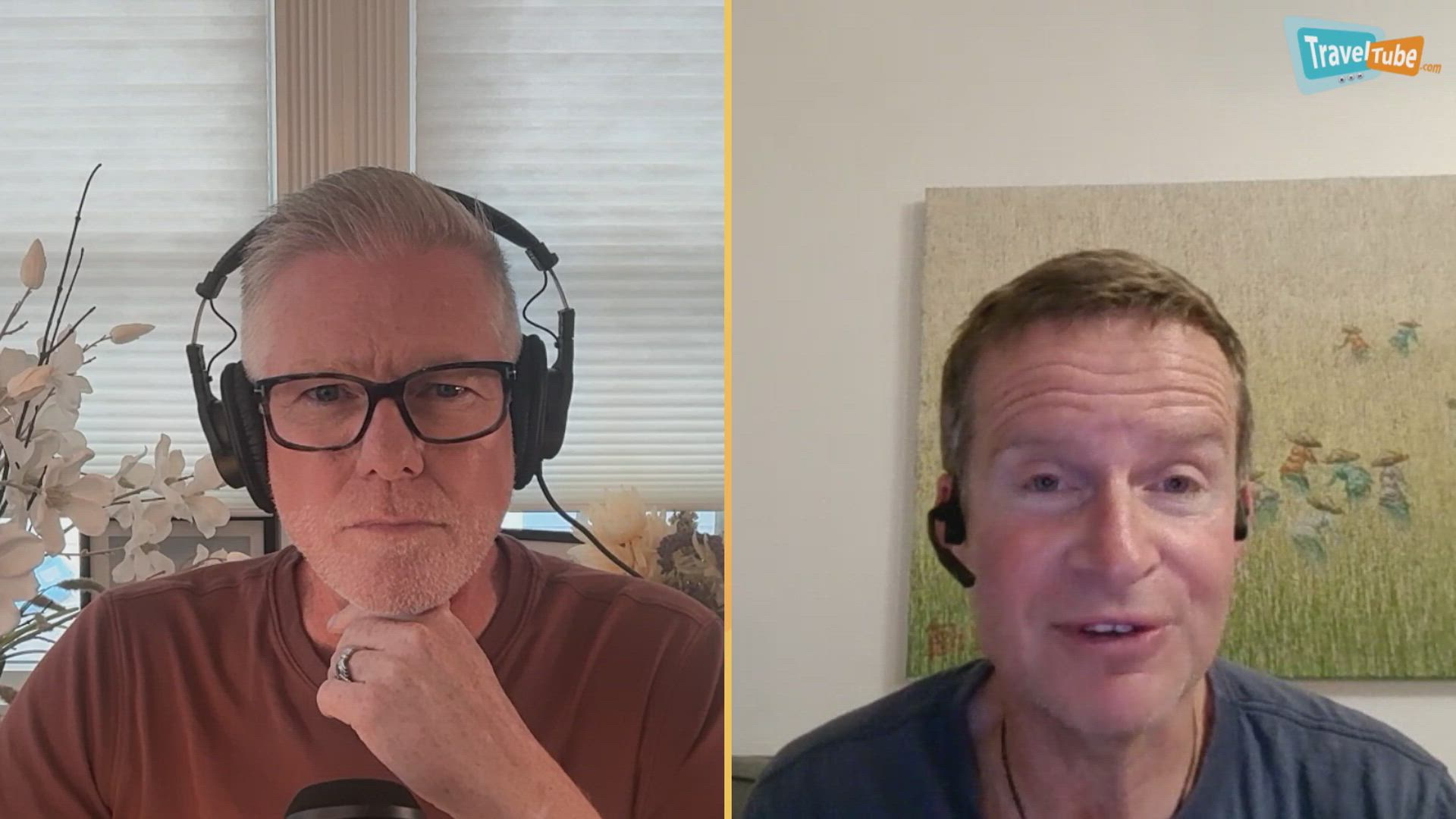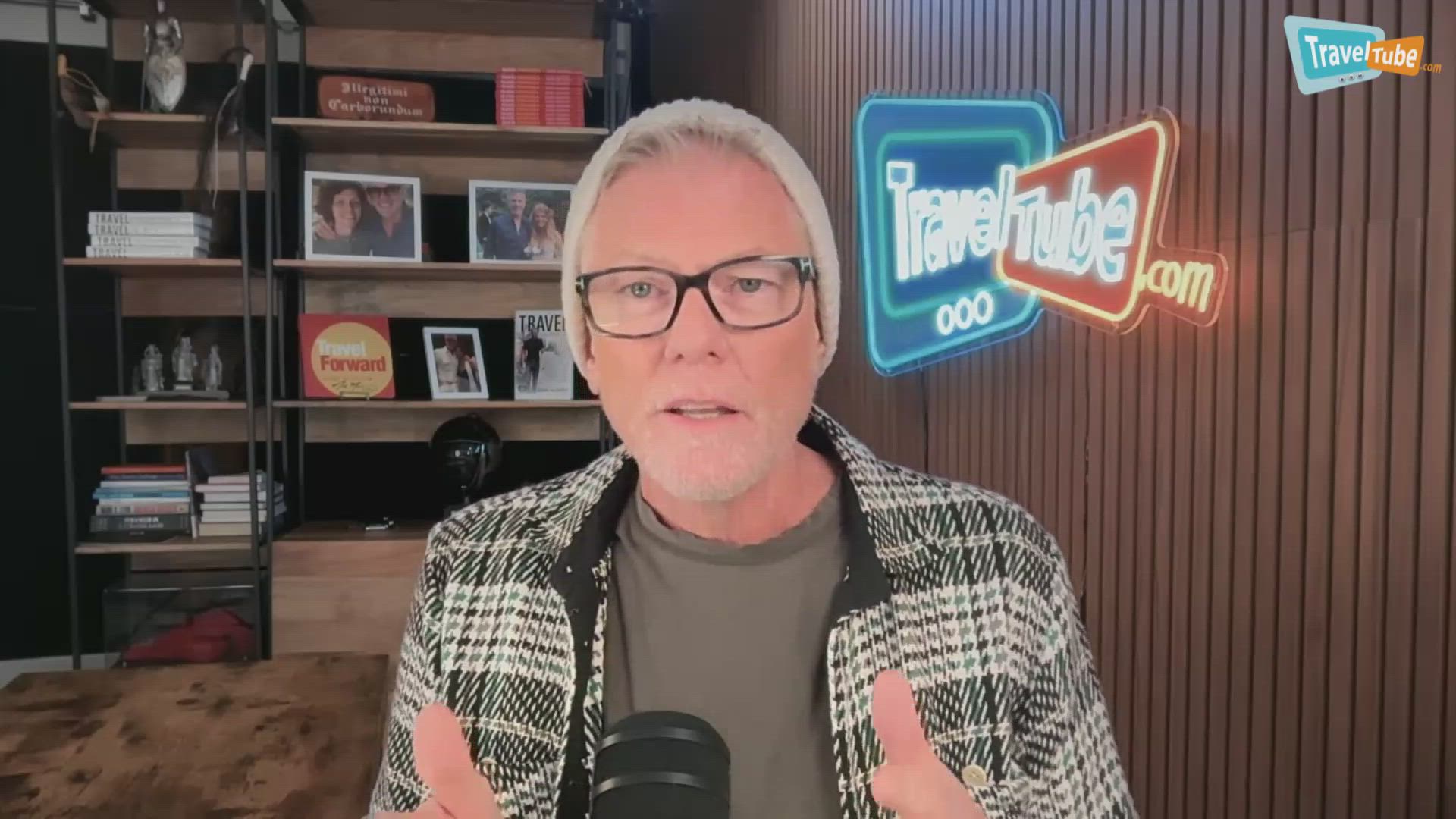Analysis: The Real Reasons Behind Declining Canadian Tourism to the US
Host: Mark Murphy
Show: TravelTube.com Podcast
Hey, I'm Mark Murphy. Hello! Yes, this is Mark Murphy and this is traveltube.com. Thanks for joining me today.
I'm going to address something and expand on it from a clip I did about two or three episodes ago about that American tourist going to Canada, because it dovetails with this whole issue around the drop in tourism to the United States—in particular from Canada, but we're seeing it from other spots around the world.
When you actually get to the reasons, it's not what the media is portraying, nor the article that I'm going to focus on today.
The Beyond Borders Tourism Coalition
There's a coalition that came together called the Beyond Borders Tourism Coalition. There was an article written about it in early August. I think it's a great effort. I think it's great that organizations are coming together to get the message out about why people should come to the United States—why it's a great country, why they'll have a wonderful time.
But the article, and I think some of the folks that were quoted and some of the folks maybe on this board, are missing the forest for the trees. I'm going to get into why I think that's the case. Then you can decide, because I'm going to take this article apart and show you what the real data shows, what is actually happening, and what's driving this drop. It's not going to be what the hyperbolic writer and some of the folks that were quoted think it actually is.
Analyzing the Article's Claims
I'm not going to name the outlet or the author—I'm just going to get into where they're coming from.
The first thing the article talks about is an inventor who basically said, "Take all the politicians, throw them in the water, and nobody'll miss 'em, but if you get rid of the scientists and the engineers, oh boy, civilization will collapse." The article suggests travel companies fit into that engineer and scientist category because they're trying to hold things together against "attacks by politicians whose actions sometimes make them appear intent on tearing civilization down to the ground."
Tearing civilization down to the ground. That's how we get started in the first paragraph.
The article continues to talk about how these organizations coming together is "unprecedented." According to this author, we are in unprecedented times because suddenly, without warning, they're seeing their businesses dry up because of political decisions made by one man. You know who that is? The current president. Who doesn't appear to have a very good grip on how people are being affected by his tariffs, as well as a whole slew of other disruptive policies that came "out of the blue."
The "Out of the Blue" Claim
Hit the brakes here. "Out of the blue"? If you follow politics at all and know anything about this current president, he has said multiple times, going back over four decades—we may be at five decades at this point—about tariffs. I know in the '80s he talked about tariffs. In the '90s he talked about tariffs.
This guy's been talking about tariffs and actually implemented tariffs during his first administration. Ironically, the Biden administration continued those tariffs and escalated some of them as well. Didn't hear a peep from some of these folks.
But with that said, who are these disruptive policies intended to benefit? Voters. The voters. Why do you think the popular vote went to this guy? Why do you think people that used to be aligned with the other party are now aligned with this party?
The Apple Investment Example
You can go look it up, but here's a hint: Did you see Tim Cook in the Oval Office a couple of weeks ago where he announced Apple is going to increase the amount they spend in the United States to manufacture iPhones from $500 billion to $600 billion? That's a "B" folks, not an "M"—that's a "B."
So far we have commitments for trillions of dollars. We'll see how that works out. But if you tell people that if they build it here and employ American workers to build it, you pay no tariff—or you can pay 10%, 15%, 25%, or even higher—that's called leverage. That's called negotiating. And that's what took place.
Media Coverage Analysis
Canadian Broadcasting Corporation (CBC)
CBC is government-owned. What's their coverage been? An estimate is that it falls between 70 and 80% negative coverage of US and Trump policies, and 20 to 30% positive or just neutral. I'll bet the positive stuff is under 5%.
Positive coverage often highlights economic resilience or trade exemptions, but negative stories dominate, focusing on tariffs, threats, and diplomatic tensions.
US Network Coverage
The CBC isn't alone with how major networks in the US cover the current administration. A study by the Media Research Center this year, from January to April of 2025, found that when it comes to the big three networks—ABC, CBS, and NBC—92.2% of the coverage was negative, based on 899 stories running across the evening newscasts.
Breaking it down by topic:
The Real Data: Why Canadian Travel to the US is Down
I asked AI tools like ChatGPT and Grok about the general drop in travel from Canada to the USA. Here's what the data actually shows:
Primary Factor: Cost and Exchange Rate (50-60% of decline)
Exchange Rate Impact:
US Travel Costs: At the same time, what happened with the cost of travel in the US? It went through the roof. I can attest to that because I go back and forth to Florida from Jersey and stay in hotels. When you get a Hampton Inn quoting $225 a night to pull off I-95 somewhere in North Carolina, and then they want another $75 because you have a dog, you're spending $300 to stay at a Hampton Inn off the highway.
Just imagine what a nice resort costs in the US.
Secondary Factor: Canadian Economic Constraints (30-40% of decline)
Tax Burden: The tax burden in Canada is massive. I had a business up there, so I know a little bit about the tax burden. Everybody talks about "free healthcare," but you don't have free anything. You're paying 50-plus percent in places like Toronto on your income tax, at a very low threshold.
Survey Data: TD Bank did a survey and noted that 64% of Canadians planned domestic travel due to economic constraints.
Political Sentiment: The Smallest Factor (10-20% of decline)
According to the data, political sentiment amplifies the economic factors but contributes only 10-20% to the decline.
The Value Proposition Problem
If you can go and spend $500 per day as a couple and stay at a four-star all-inclusive resort in Mexico through a Canadian tour operator, why would you come to the US?
The value difference is stark. When you're getting crushed financially and your disposable income is getting crushed, and you still have a little bit of disposable income to travel, well, I think we currently have one all-inclusive in the United States and it's probably $1,000 a day.
Mexico has picked up business, and other places have picked up business. I was in Portugal a few years back—after you paid for the airfare, it's really cheap to eat out. Lisbon's a great little city, they have beaches, beautiful country. Go there because you'll save a ton of money.
The Hotel Inventory Issue
When you've got hotels where they estimate that 20% of the inventory in New York City was pulled out for other uses, and you want to go to New York City and spend a couple of nights there, you're looking at a Holiday Inn near Hell's Kitchen for $800 a night, and then the city of New York adds another 20% in taxes on top of that.
Why? The open border situation. Hotel owners are thrilled because they sold out their hotels for the next two to four years, and they're making bank. They never ran at 100% occupancy year-round. Now they do. They never had guaranteed payments from the government without transaction fees.
International Perspective
Here's a clip from someone who comes to the US from the UK:
"While I was growing up, all I ever saw in the UK—the media coverage of the US was always bad, saying that the people are rude, that it's not a nice place to go, that it's dangerous. And all of that stuff could not be further from the truth. There was not one time that I felt unsafe in America in a whole six weeks. Everybody I met was friendly. Everybody I met wanted to have a nice chat. The scenery—don't even get me started on how ridiculously beautiful it is."
Conclusion
There are a lot of factors that go into what's impacting travel. To try to pretend that it's something that it's not—like leading with tariffs—is just poor journalism, sloppy journalism, and wanting to basically push a political narrative as opposed to a reality check.
The real breakdown:
You have to adapt. Things are always changing in travel. Don't make excuses—adapt to the reality of what's actually driving these changes.
Thanks for watching. Please follow me and traveltube.com on your favorite podcast apps. Come to the site traveltube.com—you'll find some destination videos and content there. We appreciate you watching and would love your feedback. Thanks!
For more travel industry analysis and destination content, visit traveltube.com






